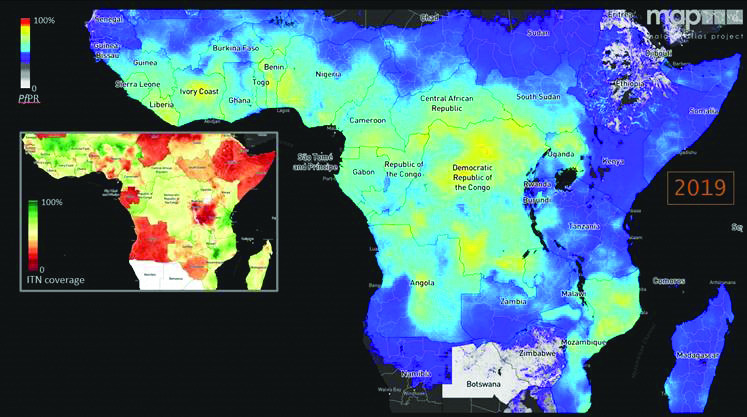The COVID conundrum
COVID-19 has proven its role as a disruptor reaching all corners of the world. With this in mind, WHO and the Bill & Melinda Gates Foundation asked Professor Pete Gething and the MAP team to create a model analysing how differing levels of pandemic-related disruption could affect malaria control in Africa.
The results were worrying, revealing that COVID could set control efforts back decades.
Professor Gething said the team explored what would happen if different interventions (bed nets, spraying with insecticide, and medication) were reduced by certain fractions, and what that would look like in terms of deaths and disease.
“We ran analyses for the whole continent…and the outcome was that there was potential to go back 20 years if people were to stop giving these interventions,” Professor Gething said.
“We would very quickly have a malaria problem on our hands that is much bigger than COVID-19.
“WHO took those results and launched a massive advocacy campaign for African governments, saying no matter how they do it, they’ve got to keep rolling out these interventions. The implications, otherwise, are incredibly serious. There would be a massive spike in mortality.
“On the basis of that, they were able to reverse that decision in nearly all countries. Bed nets and sprays were barely disrupted, and our work directly contributed to that,” he said.

The Malaria Atlas Project used sophisticated Big Data analytics to create detailed maps showing malaria risk that countries use to target resources. This one estimates the percentage of children infected with malaria in 2019 along with (inset) the percentage currently using an insecticide-treated net to protect them from mosquitoes at night.

